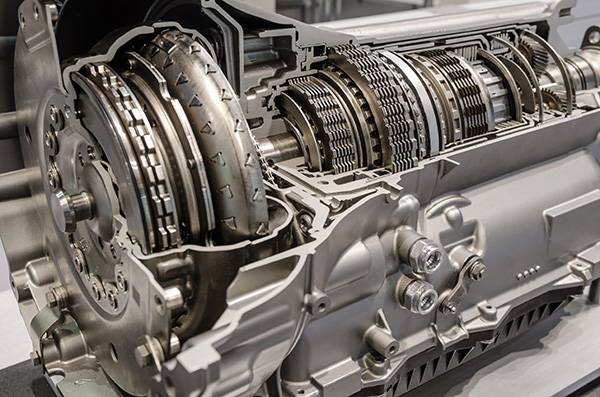
Your car’s transmission is one of its most complex and essential components, responsible for delivering power from the engine to the wheels and controlling your vehicle’s speed and torque. When everything is working properly, gear shifts are smooth and nearly unnoticeable. However, if you start to feel your transmission slipping, it’s a sign that something isn’t right, and ignoring it could lead to costly repairs or even complete transmission failure. Understanding what causes transmission slipping and recognizing the symptoms early can help keep your car safe and reliable.
What Is Transmission Slipping
Transmission slipping occurs when the transmission changes gears unexpectedly or cannot stay in the proper gear. Instead of a smooth, controlled transfer of power, the engine may rev excessively without a corresponding increase in vehicle speed. This can happen in both automatic and manual transmissions, though it's more common in automatics.
Common Signs of Transmission Slipping
Several symptoms can indicate that your transmission is slipping:
- Delayed or Harsh Shifting: You may notice a delay when shifting into gear or feel rough or abrupt gear changes.
- High RPM Without Acceleration: The engine revs higher than normal, but the car doesn’t accelerate as it should.
- Unusual Noises: Grinding, whining, or other strange sounds when shifting gears can point to internal transmission problems.
- Burning Smell: Overheating transmission fluid can create a burnt odor, signaling that the transmission is under excessive strain.
- Check Engine Light: In many modern vehicles, slipping can trigger a warning light on the dashboard.
Common Causes of Transmission Slipping
Low or Worn-Out Transmission Fluid
Transmission fluid lubricates and cools the transmission’s internal components. If fluid levels are low or the fluid is old and degraded, it can’t maintain proper hydraulic pressure or provide adequate protection.
Leaks are a common cause of low transmission fluid, and ignoring them can lead to severe damage.
Worn or Damaged Clutch Components
In manual transmissions, a slipping clutch can cause similar symptoms. Over time, the clutch disc can wear out, preventing it from fully engaging and leading to slippage.
In automatic transmissions, internal clutches and bands can also wear out and lose their ability to hold gears properly.
Malfunctioning Solenoids
Transmission solenoids control the flow of fluid within the transmission. If a solenoid fails or sticks, it can affect gear engagement and cause slipping.
These components are electronically controlled and require proper diagnosis using advanced scan tools.
Worn Gears or Bands
As transmission components age, the internal gears and bands can wear down. This wear reduces the transmission’s ability to stay engaged in a specific gear and can lead to slipping, erratic shifting, and poor performance.
Overheating
Heat is a major enemy of transmissions. Excessive heat can cause transmission fluid to break down and lose its protective qualities, accelerating wear on internal parts. Sometimes, overheating is caused by heavy towing, stop-and-go traffic in hot weather, or insufficient cooling.
Why You Should Never Ignore Transmission Slipping
A slipping transmission is more than just an annoyance — it’s a serious safety concern. Without a reliable power transfer, you may struggle to accelerate when merging or overtaking, and the car could suddenly lose drive power altogether.
Delaying repairs can also result in more extensive damage, turning a manageable repair into a full transmission rebuild or replacement, which is significantly more expensive.
How to Prevent Transmission Slipping
Routine maintenance is the best way to prevent slipping. Regularly check and change your transmission fluid as recommended by your manufacturer, and address leaks immediately.
If you notice any early symptoms, have your vehicle inspected right away. Catching issues early can save you money and extend your transmission’s lifespan.
Trust Napa BP in Virginia Beach, VA
At Napa BP in Virginia Beach, VA, our experienced technicians understand the importance of a healthy transmission. We offer comprehensive transmission diagnostics, maintenance, and repair to help prevent slipping and other serious issues. If you’ve noticed delayed shifts, strange noises, or any other signs of transmission trouble, don’t wait until it’s too late.
Schedule an appointment with us today and keep your vehicle performing safely and reliably for miles to come.